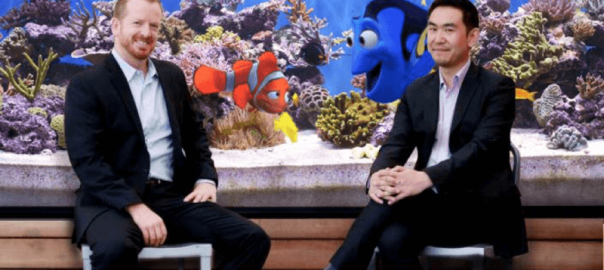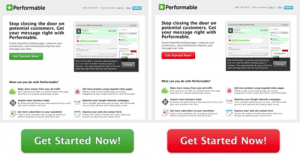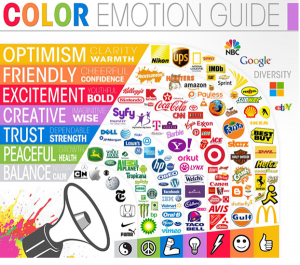Sometimes CMOs get caught up in the all-important task of marketing their company’s brand. But columnist Sweta Patel says if you want to be a successful leader, you need to take steps to build your personal brand.
 As a marketer, you know how much competition there is just to maintain your own position. It’s a churn-and-burn world, and companies aren’t retaining their CMOs like they used to.
As a marketer, you know how much competition there is just to maintain your own position. It’s a churn-and-burn world, and companies aren’t retaining their CMOs like they used to.
It’s becoming a huge problem. Executive leaders are constantly looking for new talent with fresh ideas to innovate. In other words, they’re looking for the marketer of tomorrow, today.
We live in an age of social proof, where someone with more social persuasion, but less experience, has more street credibility. But how do you stand out in a crowd of marketers and lookalike CMOs?
It’s easy to get caught up in the demand of building and marketing your company’s brand. But the reality is, as a marketer, you cannot ignore the importance of marketing yourself.
Maybe you’ve reached a point in your career where you feel like you’ve plateaued and are fearful of being replaced by someone younger and more digitally savvy. Focusing on not losing your job will result in not doing good work, which might get you fired regardless.
That’s a problem worth looking into further.
So what’s the solution?

Influence Tree’s Ryan Foland (left) and Leonard Kim.
I had the opportunity to meet with Ryan Foland and Leonard Kim, partners at Influence Tree, who say that the solution to this career-jeopardizing problem is simple:
Build your personal brand.
You may be thinking, how do I build a personal brand when I have to focus on getting my company more exposure?
The answer is right in front of you.
You’re a marketer. You know exactly how to market things. That’s why you’re the CMO of the company, steering the ship of the organization. And this isn’t your first voyage, either; you’ve done this countless times at the other companies and agencies you’ve worked for.
But perhaps you haven’t thought about how to do the same thing that you’re already doing… for yourself.
So how do you do it?
Here are the first three steps that Kim and Foland use with their clients to help them start their personal brand:
Step 1. Take a step outside yourself
When you look at yourself in the mirror, guess what you see? Yourself — flaws and all. “I’m not good enough,” you may say. Or “I don’t have what it takes; this is too hard; I just don’t know what to do.”
It’s okay to think these thoughts. They come naturally to all of us. But if you’re leading a multinational corporation, you do have what it takes. You’ve already proven it. You just need to discover your own story.
“No one cares about what you do until they discover who you are,” said Foland. “You need to get people to buy into your story.”
Pixar generates billions through its movies because people like us go to the movie theater to watch a fish go on a journey to find their child.
“The reason we watch Nemo [sic] and Dory go on what seems like a never-ending journey across the sea isn’t because they are cute fish,” Kim said. “We watch them because we are intrigued by the journey.”
To start building out your personal brand, take a hard look at your story and journey to see how far you have come. People want to watch that — and guess what? They will cheer you on along the way.
Isn’t that exciting?
Step 2. Be vulnerable
Kim and Foland make their clients feel uncomfortable; they challenge their clients to look at their past as a starting point. You may feel like you have to put on a front of success, but in actuality, you may be isolating yourself from people.
“It starts with vulnerability,” Keith Ferrazzi, New York Times best-selling author and CEO of Ferrazzi Greenlight, told me.
A decade ago, when Ferrazzi wrote the book, “Never Eat Alone,” it was clear that your network was your net worth. This led to Forbes calling him the “most connected person” in America.
But when you fast-forward to today, in this complex, interdependent world, your network has transformed into much more than that. Now, your network also incorporates how you get things done, and even the way we transform our businesses and our own lives. For this reason, Ferrazzi is regularly called upon to help the CEOs of the most important companies in the world transform their businesses. Not bad for a poor kid from Pittsburgh.
“When you service your network with your own personal vulnerability, it unleashes possibility and deepens the relationships around us,” Ferrazzi said.
If relationships are critical to our success, creating empathy is the bridge and accelerates the deepest levels of loyalty and commitment. Generosity and vulnerability are the keys that unlock that bridge, Ferrazzi has discovered.
If you’ve followed Ferrazzi’s career, he was the youngest person ever to become a CMO of a Fortune 500 company. He was both CMO of Deloitte and the CMO of Starwood Hotels. This proves just how effective being vulnerable is — and how far it can take you in your career.
What does this mean for you as a CMO who’s trying to build your brand?
Here’s how you leverage your own vulnerability.
Every hero has a backstory, and you are a hero in your own right. Look back into the past for the good, the bad and the ugly. Find the defining moments you will never forget because they were so traumatic, and extract the authentic elements of who you are today as a result of overcoming those challenges.
Revisit your LinkedIn bio and share how your past has enabled you to become the leader you are today. As soon as you humanize yourself, you become more relatable, and being relatable is the best starting point for becoming a true thought leader.
Step 3. Take the plunge, but pick the pool
You don’t have to be on all social media platforms. You need to strategically choose one, then dominate it. First of all, don’t be on Facebook. Think of LinkedIn or Twitter as the platforms to utilize. You have limited time, so you need to invest it in something you can own and point to.
A big part of choosing which social media pool to swim in is considering the type of people who are swimming in that pool. You don’t need to be on Snapchat. You don’t need to be on Instagram. You need to be on LinkedIn, Twitter, Quora or Medium.
“Dory couldn’t find her family in the shark tank because her family doesn’t hang out with sharks,” Kim said. “Dory found her family around the blue tangs, which was her target market. Find your friendly waters, and make sure you aren’t swimming in the deadly waters of no return.”
Not sure what to post? Here’s what you need to do: Start with your bio and tell your story as if you’re Nemo, from the very beginning. Then make a list of 50 headliners, and every single day, sit down and write. Allocate a minimum of 30 minutes and a maximum of an hour each day to put your fingers on the keyboard and write away.
These are the first three steps in building your personal brand while still building a brand for your company. Be like Nemo and take a journey. Be like Ferrazzi and own your vulnerable moments. Be like Dory and choose to swim in the right pool.
What are you waiting for? No matter where you are in your journey, there is no better time to start building your personal brand than today.
Some opinions expressed in this article may be those of a guest author and not necessarily Marketing Land. Staff authors are listed here.
Marketing Land – Internet Marketing News, Strategies & Tips
(112)
Report Post









